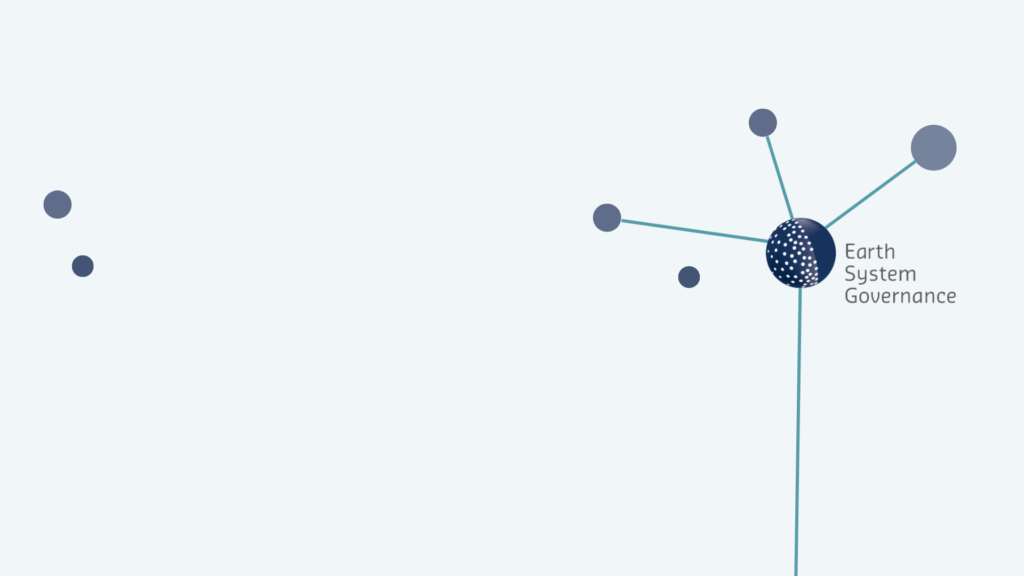This piece by Steffen Bauer and Alexia Faus Onbargi was originally written for The Current Column – German Institute of Development and Sustainability (IDOS)
Bonn, 26 October 2022
Amid a daunting mix of global crises, ranging from global heating, biodiversity loss, social and economic stress from the still ongoing COVID-19 pandemic to severe geopolitical turbulences in the context of Russia’s war on Ukraine, some five-hundred scholars participated in the Earth System Governance (ESG) annual conference at University of Toronto, partially in hybrid formats. ESG is a global, interdisciplinary research network that mobilizes social scientists seeking to advance knowledge at the interface of global environmental change and governance at local and global scales. Accellerating just transitions was the focal theme of the conference’s 13th instalment.
Joined by a strong research delegation from IDOS, participants addressed a plethora of questions that are also being asked by decision-makers who today find themselves in a messy policy pickle. How to govern just transitions while addressing climate change, reducing poverty and inequality, and implementing national agreements like the 2030 Agenda, all while adapting to the current geopolitical situation, is a conundrum that social sciences might just be able to help with. Here, policy coherence arises as an important tool to maximize synergies, reduce trade-offs and ensure efficient, effective and equitable just transitions. However, such orchestration needs to account for the interests of key actors, institutional structures and power asymmetries, as well as for political inequality among individuals. This involves paying special attention to the politics of just transitions and the kinds of policy decision-making processes needed to implement them.
Applying such overarching questions is of immediate relevance to international cooperation. The ambition of the current G7 Presidency of Germany, for instance, to advance Just Energy Transition Partnerships (JETPs) to boost global climate action is a case in point. It builds on the example of the plurilateral partnership of the EU, the US, Germany, France and the UK with South Africa, as announced during last year’s UN climate change conference COP26 in Glasgow to accelerate the emerging economy’s coal phase-out and sustainable energy transition. Now similar deals with further coal-dependent middle-income countries are expected to be struck in the context of the imminent COP27 in Sharm El-Sheikh, Egypt, in November. Yet, bringing such partnerships to life is challenging and runs the risk of failing to deliver on their promises, particularly if the international sponsors of such partnerships are perceived as applying double standards, not least with regard to revising their own energy policies in response to the consequences of the war in Ukraine.
The global research community, too, can be undermined if there is no decolonisation of knowledge generation and adequate representation of a truly global range of perspectives. Many colleagues from the Global South keep encountering obstacles to equal participation in global research exchanges, not least stringent visa policies. The Toronto conference was no exception: several on-site panels needed to be cancelled at the last minute because fellow researchers could not enter the country. Such barriers have an important effect on scholarly networking and, indeed, research outputs. Not only may insights from the Global South – the most at risk of climate change and other planetary overshoots –be neglected, but proposed solutions to pertinent governance challenges run the risk of remaining biased by Global North perspectives. Positionality in science matters and just transitions are bound to fail if science and research are not diverse, equitable and inclusive. As such, future JETPs will be well advised to accommodate research insights from the Global South, and notably from the addressed partner country.
“Reason for hope in a world on fire”
The inherently political nature of just transitions and, indeed, the cross-cutting relevance of energy policy was also at the heart of the conference keynote by Tzeporah Berman, chair of the Fossil Fuel Non-Proliferation Treaty Initiative. Insisting on ‘reason for hope in a world on fire’, in spite of powerful adversaries engaging in cynicism and outright obstruction, she set a daring, yet constructive tone for the conference. Rather than merely clinging to hope for global change, she called upon the research community to be courageous in communicating inconvenient evidence-based truths to decision-makers. Indeed, Berman’s keynote represented the spirit with which the 2022 ESG conference, even during these especially fraught times, provided qualified reasons for sustaining optimism: not only is a global transformation towards sustainability possible, but immediate steps can be taken now in the imminent climate negotiations, to advance just transitions. Several IDOS researchers will shortly be making their way to Sharm El-Sheikh, in the hope to carry over such optimism into COP27 and to inform global climate diplomacy with their research-based findings. While the need for a global just transition is far broader than the scope of climate governance, courageously confronting global heating with accelerated and just action is quintessential to getting there fast.
Image credit: Dave Chan





